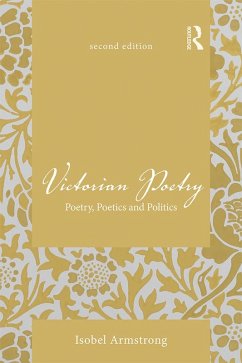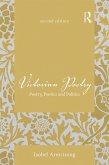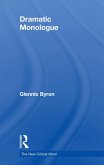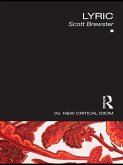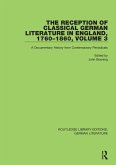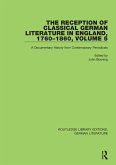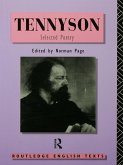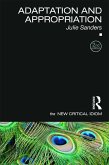In
Victorian Poetry: Poetry, Poetics and Politics, Isobel Armstrong rescued Victorian poetry from its longstanding sepia image as 'a moralised form of romantic verse' and unearthed its often subversive critique of nineteenth-century culture and politics. In this uniquely comprehensive and theoretically astute new edition, Armstrong provides an entirely new preface that notes the key advances in the criticism of Victorian poetry since her classic work was first published in 1993. A new chapter on the alternative
fin de siècle sees Armstrong discuss Michael Field, Rudyard Kipling, Alice Meynell and a selection of Hardy lyrics. The extensive bibliography acts as a key resource for students and scholars alike.
Dieser Download kann aus rechtlichen Gründen nur mit Rechnungsadresse in A, B, BG, CY, CZ, D, DK, EW, E, FIN, F, GR, HR, H, IRL, I, LT, L, LR, M, NL, PL, P, R, S, SLO, SK ausgeliefert werden.

